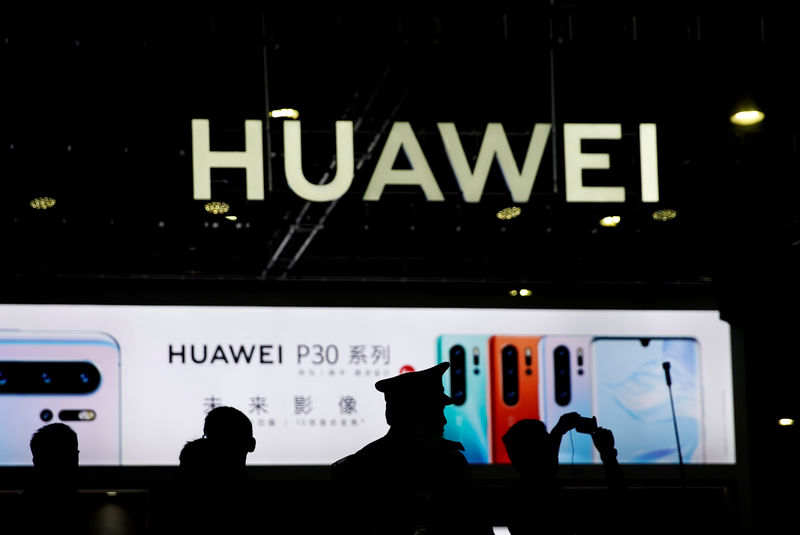By Sijia Jiang
HONG KONG (Reuters) - Huawei pegged its patent talks with U.S. carrier Verizon (N:VZ) as "common" business activity and said such negotiations should not be politicized, days after a senator filed legislation to prevent the Chinese firm from seeking damages in U.S. courts.
The company has demanded that Verizon pay licensing fees for more than 230 of the telecoms equipment maker's patents and is seeking over $1 billion, a person has told Reuters, against a background of mounting U.S.-China trade tensions.
Republican Senator Marco Rubio has described Huawei's demand as "baseless" and filed the legislation as an amendment to the National Defense Authorization Act, or NDAA, which places a broad ban on the use of U.S. federal money to buy Huawei products citing national security concerns.
"We simply don't believe Marco Rubio's amendment could be passed as law," Huawei's chief legal officer, Song Liuping, said at the company's Shenzhen headquarters on Thursday.
Intellectual property (IP) rights "should not be politicized", Song said. "IP is a private property issue and should be free from the competition, trade talks and any other allegations that countries have between them."
Song added that Huawei has been discussing patent licensing with companies in the United States, Europe and other parts of the world on a regular basis.
While the measure proposed by Rubio is several steps from becoming law, lawmakers have successfully used the NDAA in the past to crack down on the Chinese firm.
Huawei, the world's biggest telecommunications equipment maker and No.2 smartphone maker, denies its products pose a security threat and has sought to fight back in U.S. courts since Washington put it on an export blacklist last month.
ROYALTIES
It recently sued the U.S. government over the NDAA.
The Chinese firm also sued CNEX Labs Inc, alleging misappropriation of trade secrets involving a memory control technology by the California semiconductor designer and poaching of employees.
A U.S. jury on Wednesday cleared CNEX, while awarding the U.S. firm no damages on its own trade theft claims.
Analysts have said Huawei may be more inclined to monetize its U.S. patents now that the market ban and supplier ban imposed by Washington is expected to cost the firm $30 billion in revenue.
However, Song said Huawei has no intention of weaponizing the company's IP rights, echoing founder and CEO Ren Zhengfei from earlier this month.
Huawei, which has received over $1.4 billion in licensing revenue since 2015, is against charging exorbitant royalties, Song said, adding the firm had never been asked by a court to pay damages for malicious IP theft.
In 2017, a jury found Huawei misappropriated trade secrets from T-Mobile (O:TMUS) and ordered it to pay $4.8 million to the U.S. telco for breaching a handset supply contract between the two companies. The jury, however, did not find Huawei's misappropriation "wilful and malicious".
"We are not going to be a company with a major source of revenue from royalties," Song said, adding that Huawei will remain focused on its core business for its top line.
Huawei paid more than $6 billion in royalties to legally implement IP of other companies and has been granted 87,805 patents, of which 11,152 are U.S. patents, Song said.

Huawei has the most 5G standard essential patents in the world, according to consultancy IPlytics.